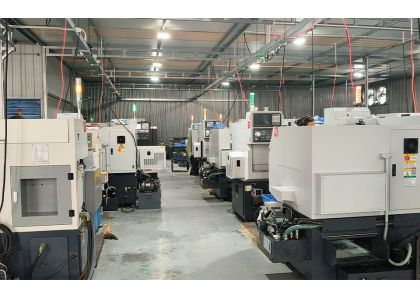
Titanium screw customization processing is a complex process involving multiple fine elements. From material selection to surface treatment, each step is crucial and jointly determines the performance and quality of the final product. Next, we will delve into the various fine elements of titanium screw customization processing.
Selecting high-quality materials
The key step to safeguard quality lies in choosing the appropriate titanium alloy material. In the customization processing of titanium screws, selecting the right material is undoubtedly the starting point and the decisive first step. The screws face different extreme usage environments, such as high temperatures, high pressures, or strong corrosive conditions, which require us to precisely select the corresponding titanium alloy material. For example, TC4 (Ti-6Al-4V) is often used in aerospace applications due to its excellent strength and heat resistance, while TA2 (pure titanium) is favored for its excellent corrosion resistance and forming ability. Through such precise selection, we can lay a solid foundation for the stable and long-lasting durability of titanium screws.
Flexible customization of specifications and sizes
Specifications and sizes need to be flexibly customized to ensure seamless connection with accessories and stable assembly. In the processing of titanium screws, customization of specifications and sizes is crucial. We must precisely set parameters such as thread specifications, length, diameter, and head shape according to the different usage requirements and assembly standards of the customer. Through this flexible customization method, we can ensure that titanium screws are seamlessly connected with related accessories, thereby enhancing the overall assembly stability and aesthetic appeal.
Surface art treatment
Enhancing the corrosion resistance and appearance of the screws through processes such as anodization, sandblasting, and polishing. Surface treatment of titanium screws is crucial for their corrosion resistance and appearance. Through anodization, we can add rich colors to the screws and significantly enhance their weather resistance. Sandblasting treatment can increase the surface roughness, thereby enhancing friction, especially suitable for scenarios requiring high-strength locking. Polishing treatment can create a mirror-like finish, further enhancing the overall quality of the product.
Skilled processing techniques
Selecting appropriate processing techniques to address the unique characteristics of titanium alloy materials is particularly important. When dealing with the unique characteristics of titanium alloy materials, selecting the appropriate processing techniques is particularly crucial. From the initial turning and milling stages, these steps aim to shape the basic form of the screws, to the subsequent drilling and tapping processes, they jointly complete the fine production of the threads. During these processes, parameters such as cutting speed and feed rate must be strictly controlled to prevent material deformation or cracks, thereby ensuring the precision and superior quality of titanium screws.
Strict quality control
Establishing a strict quality control system in the precise manufacturing process of titanium screws is crucial. This includes from the analysis of material composition to comprehensive testing of mechanical properties, aiming to ensure that each batch of titanium alloy materials meets high standards of quality. Additionally, using high-precision measuring instruments, precise detection of the size accuracy, shape contour of the screws, and meticulous evaluation of the surface treatment effect are indispensable steps.